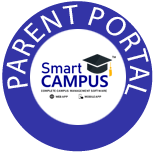KINDERGARTEN
Areas of learning experiences
The word ‘Kindergarten’ literally means ‘children’s garden’. Every child is, therefore, taken care of and nurtured like plants in this garden. Along with parents, who are really the first teachers in educating the child, we see that transition of a child from home environment to school environment is made as smooth as possible. We follow ‘Learning by Doing’ method through creative activities in order to meet the developmental needs of children. As part of our vision, a child is motivated to learn with pleasure to be spiritually oriented, socially acceptable, physically healthy, emotionally balanced, environmentally sensible, verbally sound, logically alert, artistically talented and rhythmically graceful. Here, all ‘play, learn and grow together’ and become beloved children of God and parents. A few areas of learning experiences are:
SOCIAL DEVELOPMENTS
- Enable children play, learn and grow in groups
- Help children make friends with peers.
- Share, bear and care for others.
- To be aware of socially acceptable behavior
- Be at home while away from home
PHYSICAL DEVELOPMENT
- Explore basic locomotor movements and apply manipulative skills, (walk, run, jump, gallop, skip, slide, bend/ stretch, push/ pull, twist/ turn, swing/ away, throw, catch, kick, strike etc..)
- Importance of health, cleanliness and hygiene.
EMOTIONAL DEVELOPMENT
- Cultivation of emotional intelligence.
- How to be at home when separated from parents
- Build up self-confidence and self-control
- A sense of individuality
INTELLECTUAL DEVELOPMENT
- Acquire knowledge through observation, exploration and exploration and experiments.
- Develop ideas through varied media like picture, action songs, story, modelling, imitation.
- Ability to listen, read and visualize
- To find out similarities and dissimilarities
CREATIVE DEVELOPMENT
- Express personal ideas and feelings
- Take part in dancing, music and skits
- Puzzles, Magic Squares
NUMERACY
- Touch and count objects
- Sorting items by size, shape
- Talk about size and relationship
- Talk about time- yesterday, today and tomorrow
- Develop mathematical ideas and reasoning
- Comparing Quantities
- Explore patterns and shapes
- Number sense
- Counting forward from 0 to 100
- Go beyond rote counting
- Connect numbers to real life situations
- Recognizing and writing numerals 0 to 100
- Skip counting by 5 and 10
- Counting backwards from 20 to 0
- Reading numerals from 0 to 100
- Performing simple data collection
- Naming geometric shapes (circle, square, triangle, rectangle, cone, sphere, oval and cube)
- Addition and subtraction
ENVIRONMENTAL STUDIES
- Sorting materials by color, shape, size, weight etc.
- Differentiating between living and non living things
- Describe seasonal changes
- Development of five senses to maximum
- Identification of plants and animals
- Safety, Transportation, Family, Good habits and Manners
- Basics of time and currency
LITERACY
- Listening, speaking, reading and writing activities
- Verbal interaction with their peers
- Letter identification
- Reading out rhymes, stories, etc
- Letter- sound relationships
- Letter formation (lower and upper case letters)
- Drawing a picture to convey meaning
- Hold and control a pencil correctly

